This is what it’s like to live in a village without contraception
When your social status is determined by the number of children you have, how do you convince someone to take the pill? Corinne Redfern travelled to So Ava, Benin, to find out…
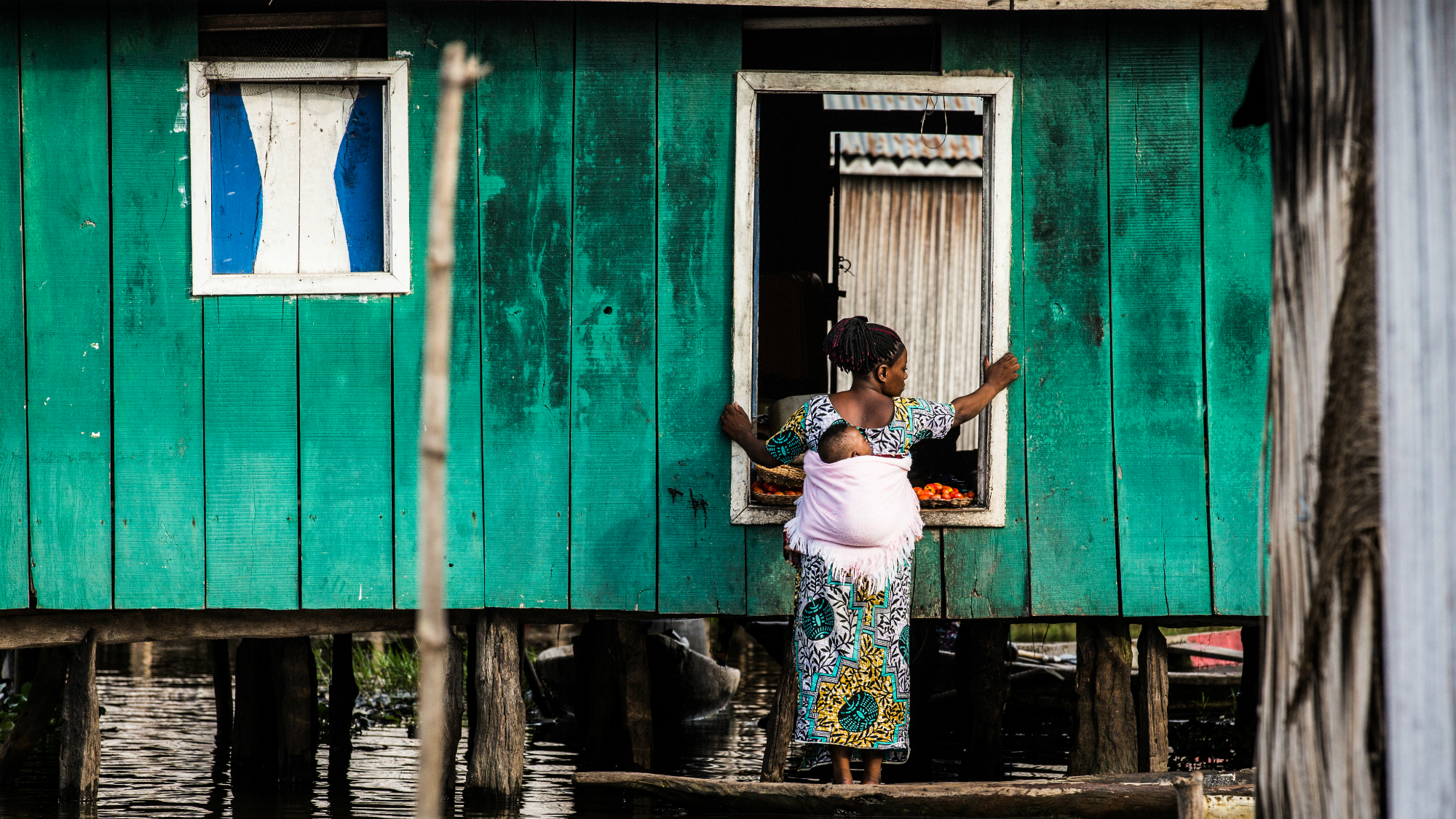
When your social status is determined by the number of children you have, how do you convince someone to take the pill? Corinne Redfern travelled to So Ava, Benin, to find out…
Christine Djengue didn’t go to her four year old daughter’s funeral. As her two sisters rowed a small flat-bottomed boat across the river and heaved themselves up onto the wobbly wooden walkway that led to her house, she sat on the floor and wound her body into a tight, motionless ball. She didn’t raise her head as they gathered the body from the bedroom and placed it carefully in the handcarved coffin. And she didn’t turn around when they left. Even now she doesn’t remember how long she spent, rock-formation solid on the floorboards, but she thinks it could have been days. All the 37-year-old can recall is watching the water below – its gentle waves lapping against the stilts with the same slow, rhythmic motion as the tears that dripped down her face. A few metres away, in the shallows of the riverbed, her six remaining children played hide and seek. Within a year, she was pregnant again.
‘Your children represent your wealth,’ Christine tells me now, as her youngest child – her tenth child – lies on a mat of woven reeds between us, batting at the air and peeing freely across the floor. ‘You think, “oh, maybe if I have lots of children, then there will be lots of children to help you fish, or earn money, or take care of you in the future when you’re old”.’ It’s the women’s duty to produce them, she adds. Failure to comply with your husband’s wish to create a large family of tiny-limbed employees will only see your spouse shrug and stray – leaving you to fend for yourself in a community that still defines women by their marital status. ‘It’s a lot of pressure. If you tell a man that you don’t want lots of children, then they’ll always find a new wife.’ She leans forward and mops at the pale spill of urine with the corner of her skirt. ‘My friends and I talk do talk about it – “My husband wants ten children but I can’t take it any more!” and so forth. But really, what can you do?’
Until recently, not much. Family planning and modern medicine run against deep currents in Sô Ava. A rural region made up of stilted wooden villages and dubbed ‘Africa’s Venice’ – where up to 80 per cent of the land is underwater at any given moment – tradition governs like the tide. ‘Every day is the same,’ explains Albertine Hoyeton, 38, who believes giving birth to five children has left her body so irreparably broken that she can’t remember the last time she slept through the night without waking up from physical pain – or financial worry. ‘And when every day is the same, it’s hard to make changes.’
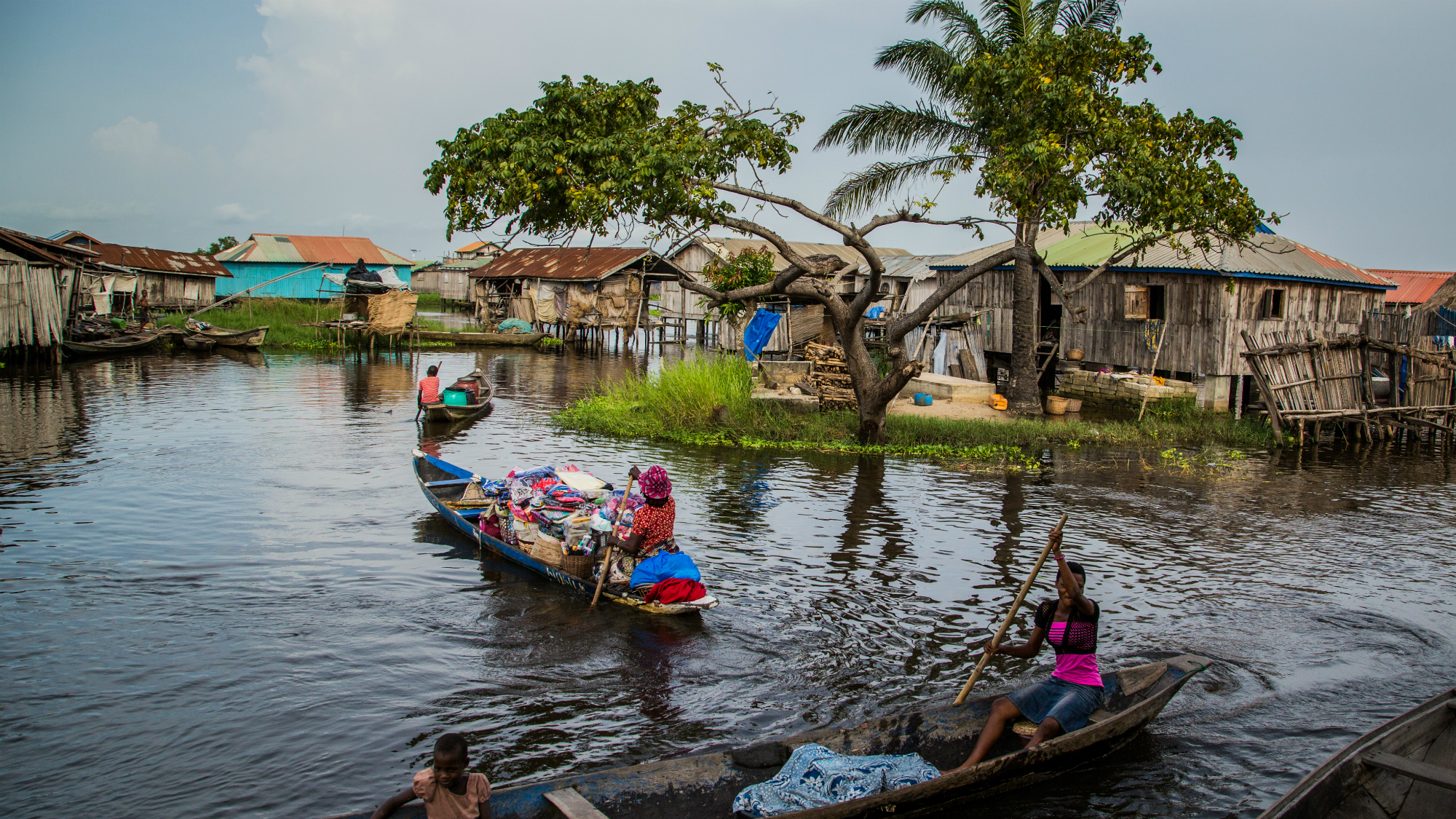
Every day, she says, starts with the sunrise. As daylight dawns, couples team together from their houses and blinkingly divide into two. Men stay to fish: paddling dug-out canoes past water hyacinths to set their nets and lie in wait, while women – laden down with hand-tied bundles of wheat-flour doughnuts and freshwater perch - wander further. A boat will take them towards Benin’s nearby economic capital of Cotonou, where Dantokpa market and its crowds await their wares. But some will continue onwards: struggling sales driving them to beg yellow-waistcoated ‘Zémidjan’ motorbike taxis to carry them on credit across the border into Nigeria. Meanwhile, back in the village, the local school opens its doors, and – regulation backpacks bouncing – boys tumble over one another to find a seat.
Only the youngest girls escape the formulaic order of the day. According to the UNFPA’s most recent figures, less than one per cent of them stay in school over the age of 15 – and a third of all girls will be married off by the same age. At £40 per year, a daughter’s education is still an expense few parents want to afford. Instead, already disposable at nine, ten, 11 years old, they fill the gaps in their relatives’ routines – feeding siblings, stirring soup, sweeping floors, finding husbands. Some hop between the clumps of reeds, trays balanced on top of surgically-woven braids as men ten years their senior stare them up and down and mouth marriage proposals across the waters. Others tread more carefully – taken by their mothers to markets, their corporal value is haggled over with the same attention as the carp sold in baskets by their feet.
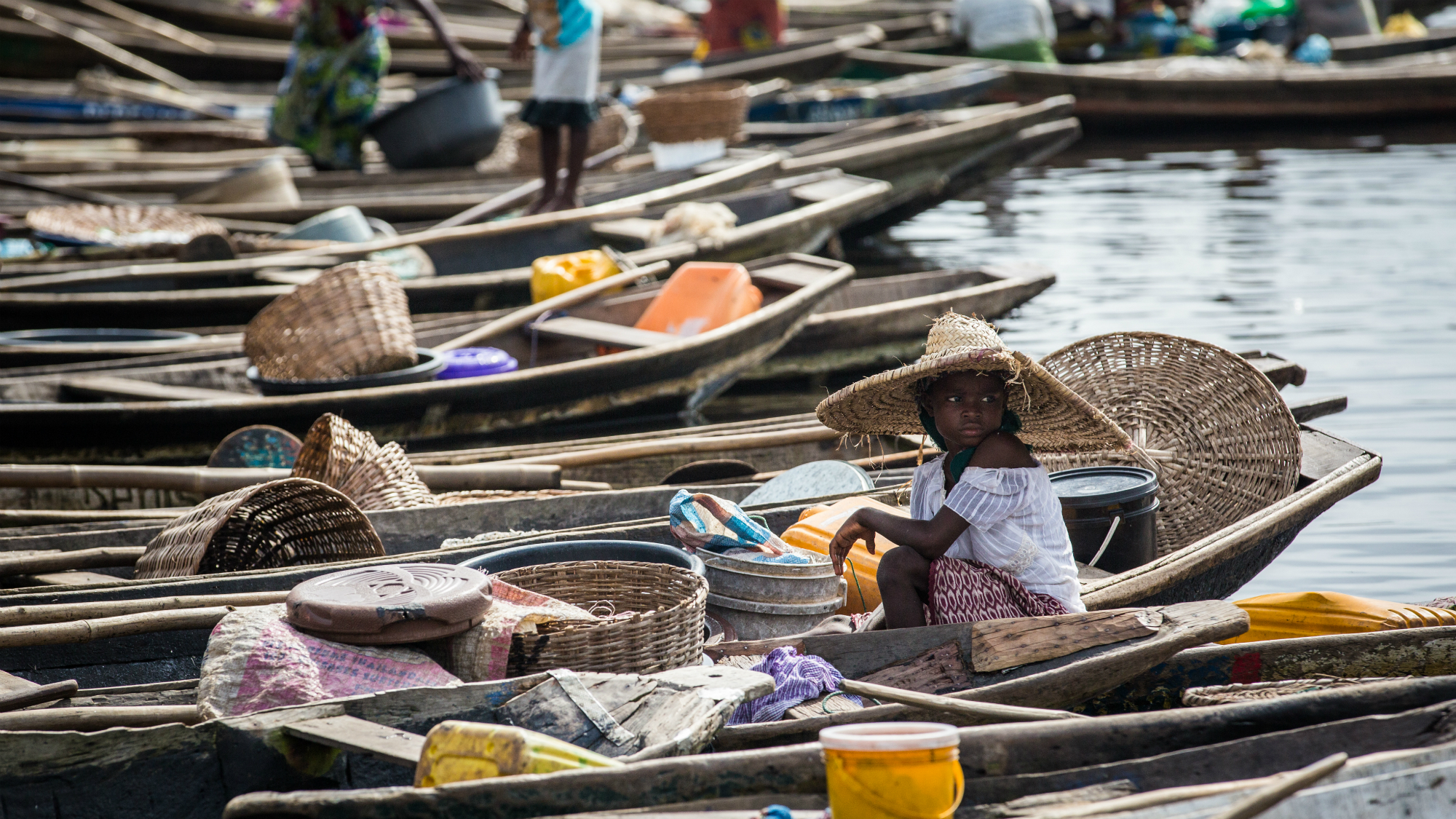
‘Girls who do go to school tend to wait until they’re 16 or 17 to get married and start a family,’ explains Claudine Degbo, 35, adding that she gave birth to her first daughter when she was 14-years-old, one year after her husband had spotted her selling cakes outside her house and asked her to marry him on the spot. ‘But girls who don’t go to school inevitably end up having children when they’re 12 or 13. It’s tough, but it’s just the way it is.’ And if you start giving birth at 12, you can carry on having children for another 20 years, she says – adding, ‘at least, that’s if your husband is lucky.’
Marie Claire Newsletter
Celebrity news, beauty, fashion advice, and fascinating features, delivered straight to your inbox!
MAKING WAVES
The divide between what Sô Ava’s men demand of their wives and what Sô Ava’s women silently dream of for themselves is wide – and widening further. But those working on the periphery of the community believe that until recently, progress was still far too slow. Sure, women might have been beginning to voice their discontent at a culture that measures their worth according to the productivity of their womb, but nobody was listening to them.
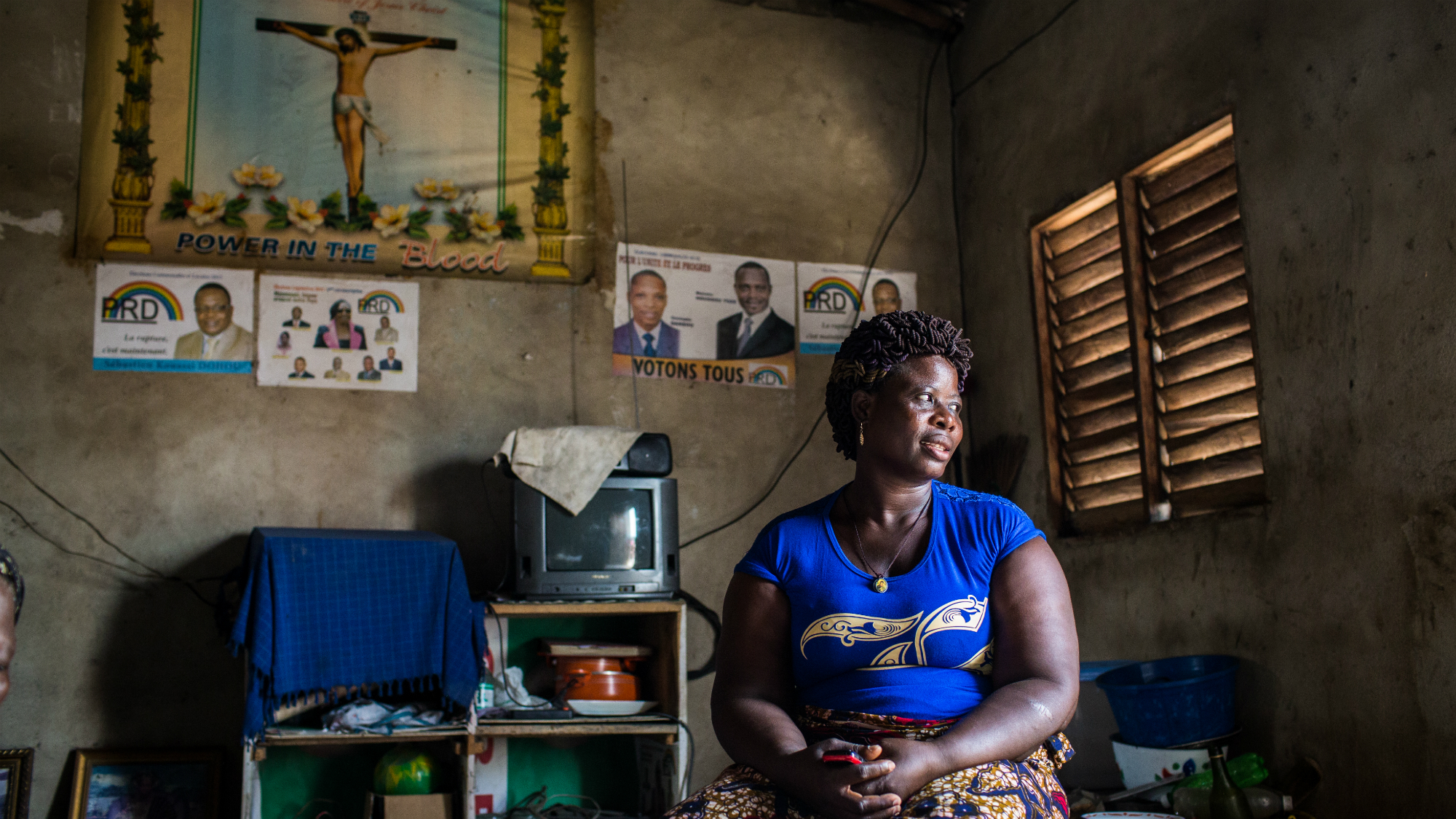
Claudine supports that theory. When she found herself struggling to get pregnant again following the birth of her first child, her husband took a second wife – a fact she only realised when he started returning home from work two hours later every day. She tried to win him back, she says. She didn’t just hate the idea that she wasn’t enough for him on her own – even worse was the fact that he also didn’t have the courage to leave her entirely. It gnawed at her insides and tore at her heart. Eventually, she consulted the local witch doctor, and bought a Voodoo potion made of bark and mixed with 7UP in a bid get pregnant again. ‘I didn’t want another child, but it was the only thing I could do to please him,’ she says now, adding that only men can have multiple partners: women must always remain faithful. But while the potion worked, her child died – and after her husband took a third partner, she packed her bags and returned to her parents’ house on the other side of the village. ‘It hurt too much to stay. But I don’t think my husband felt sad at all.’
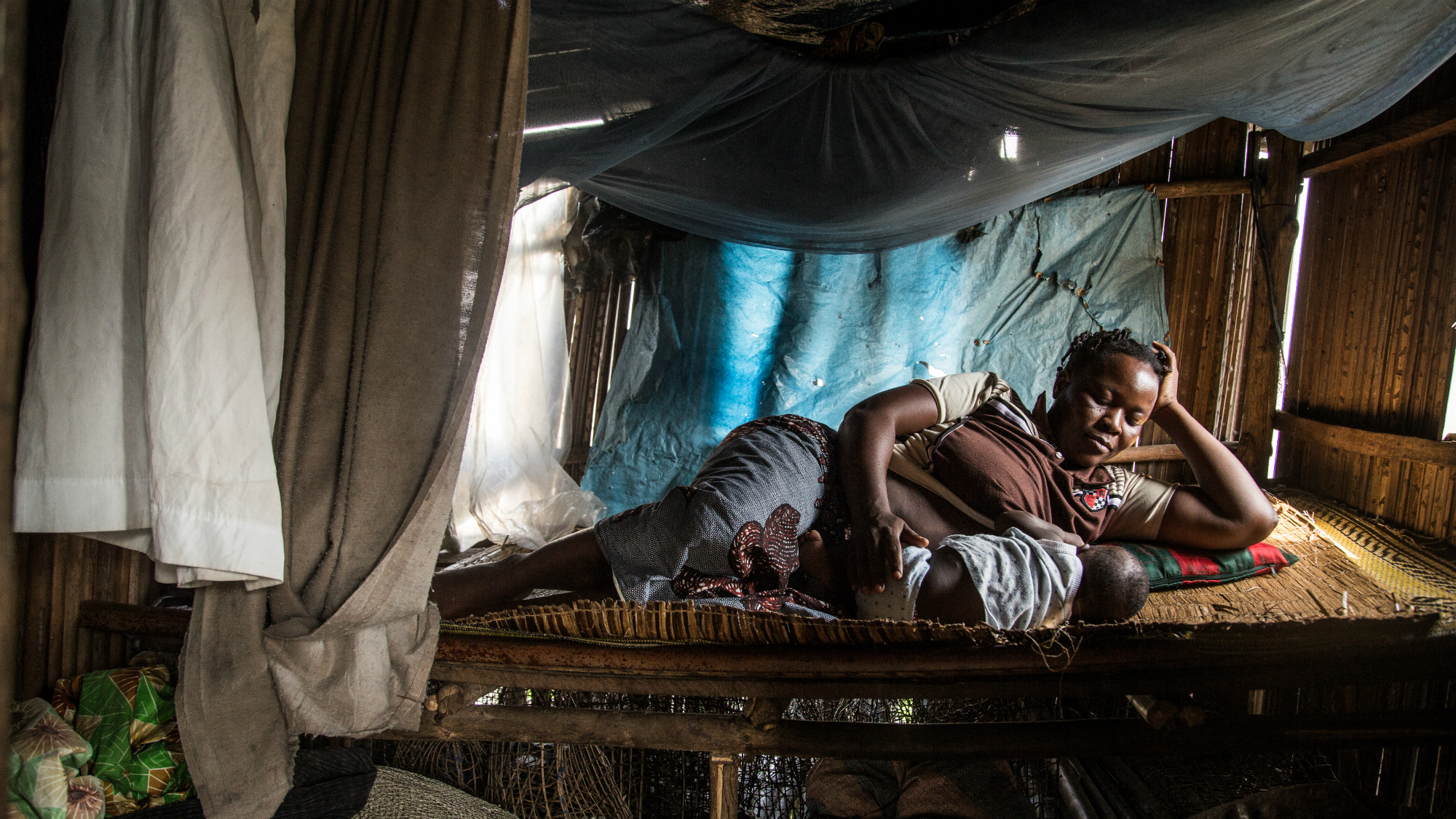
Christine, who makes her eyes are large and laughing to disguise her backache when she tries to stand up, agrees. Her husband, Jacob, didn’t cry when their daughter fell sick and passed away, she says. He hadn’t cried when their eight-day-old son died five years earlier either. On neither occasion did he ask how she was.
‘I knew then that I wanted to stop having children,’ she recalls. ‘But I didn’t know how, and I couldn’t tell my husband.’ She confided in her mother – who told her to track her fertility according to her menstrual cycle. ‘She said that tracking my periods was an ancient tradition, passed down from woman to woman. But I didn’t understand why I’d never heard this until now.’ Christine says she told her friends about the technique straightaway – but only half of them listened, and she understands why. After all, she’s already had to deal with the repercussions herself. ‘As soon as I started to refuse to sleep with my husband whenever he wanted, he took another wife,’ she explains. ‘I thought I’d feel sad about that, but I didn’t. I felt strong. My body wasn’t at his disposal any more. I was in control for the first time since marrying him.’
A few curves of the river away from central Sô Ava is Ganvié: the largest village in the region, complete with tourist-friendly (not to mention spectacularly turquoise) stilted backpacker hostel. Albertine was born here, and says she believes that Benin’s current social climate, where modern medicine butts heads against traditional Methodist, Muslim and Voodoo beliefs, has left the current generation of women in their 20s and 30s at a particular disadvantage. ‘Twenty or thirty years ago, nobody used contraception, but our mothers were still able to space out their children because they’d all been taught how to avoid getting pregnant using traditional methods,’ she tells me. ‘But that kind of knowledge – knowledge about a man not ejaculating inside the woman during sex, or tracking your periods – used to get passed down from your elders. These days, nobody listens to the elders any more. It’s like we’ve lost the wisdom of the past, without adopting any of the knowledge of the future.’
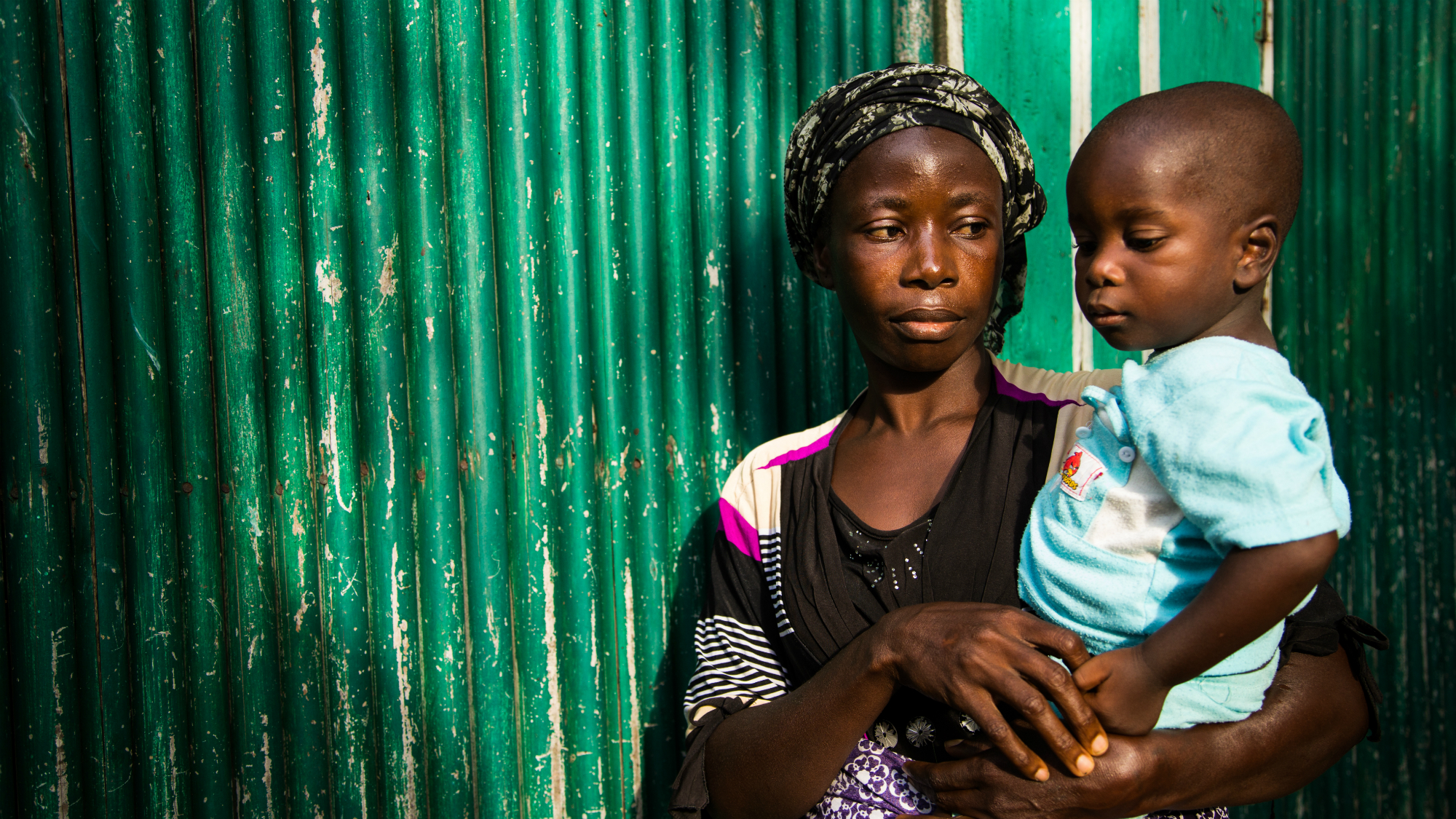
Terminating a pregnancy is illegal in Benin – unless the pregnancy is a product of rape, or endangers the woman’s life – but anecdotally, sales of local Voodoo medicines to induce abortion appear to have been on the rise. One man, selling small glass bottles of pale-orange, green and brown liquids from a box balanced on the back of his motorbike tells me that this time last year, demand was at an all time high. ‘Every woman knows someone who has done it,’ adds Christine, citing one friend in her late 20s who recently found out that she was expecting for the sixth time in seven years, and turned to the local witch doctor in desperation. When she started bleeding so much she passed out, she was rushed by water taxi to the nearest hospital, and discovered she had been pregnant with twins. ‘She had a lot of problems with her husband after that,’ Christine recalls, lowering her voice so that Jacob – sat on the other side of the room – won’t hear.
Christine, Claudine and Albertine are all aware that Sô Ava’s average birth rate of 5.1 children per family isn’t Benin-wide. In urban environments such as Cotonou and Porto Novo, girls can remain in full-time education until their late teens, they say enviously. Albertine has heard that contraception can even be bought from the local chemist. But when a community is frozen in time (or maybe just when the road towards the future is, in fact, a river) then techniques used to implement change need to become fluid. And the quiet, female-led rebellion bubbling underneath Sô Ava’s surface was just stage one.
Stage two was the boat.
THE BOAT
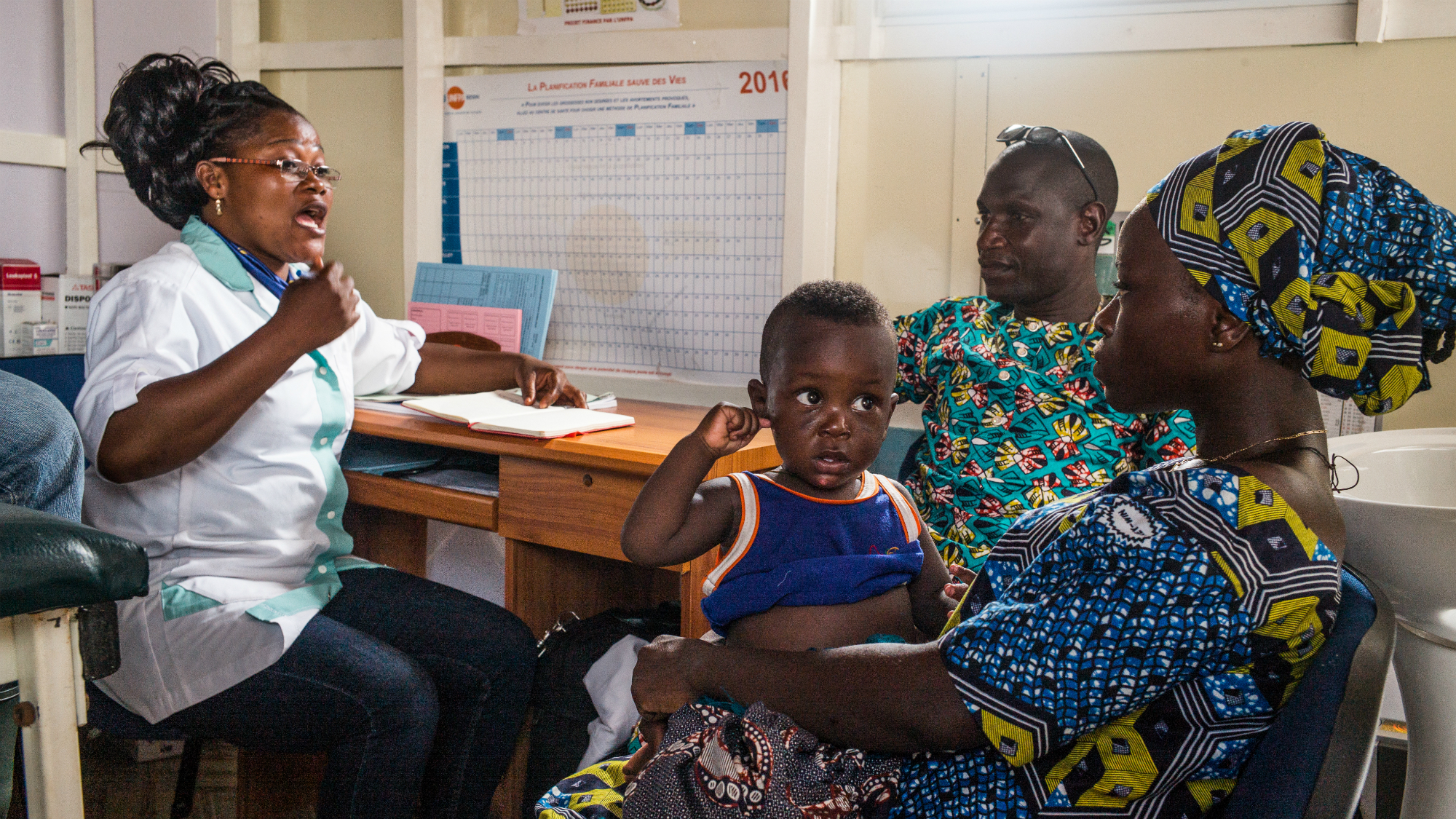
Simplicia Zannou, 20, sits on a plastic chair and covers her mouth with her hand. On her lap, her 11-month-old son, Midokpe, moves as if to dive headfirst towards the floor, and without breaking her gaze from the wall, she steadies him. She doesn’t make a sound.
‘I’ve just told her that she’s pregnant again,’ explains nurse Laetitia Gnansoumou, 41, who has been working in Sô Ava for nearly a year. ‘She didn’t expect this, so I think she’s just taking some time to process the information.’ In the corner of the office, Simplicia’s husband, Bouraisma, 25, leans back comfortably. I can ask him anything I want, he says.
Can I – can I ask Simplicia something first? He laughs. You can try, but there’s no point, he says. She agrees with everything he has to say.
Did you want to get pregnant?
Simplicia stares at me for a second, then turns her head towards Bouraisma.
‘We have three children already, and I always thought five was a good number,’ he replies, manspreading his legs and gesturing at the brightly patterned trousers he made himself; the likes of which he sells as a tailor for £1.20 a piece. ‘Our eldest daughter is eight. But it’s becoming harder and harder to make money, so I thought now would be a good time to start spacing out the births. It’s very expensive to have children. I used to think that having a large family meant that you would be better off, but now I see that it makes you poorer. That’s why I had the idea to come here.’
The couple stands up to leave, and the office sways heavily to one side as they walk towards the door. They didn’t turn up intending to take a pregnancy test. They came to get contraception – to visit Sô Ava’s inaugural ‘floating family planning clinic’, or, as it’s locally known, the ‘Barque Mobile’ (pronounce it like ‘bat mobile’, only with a ‘k’).
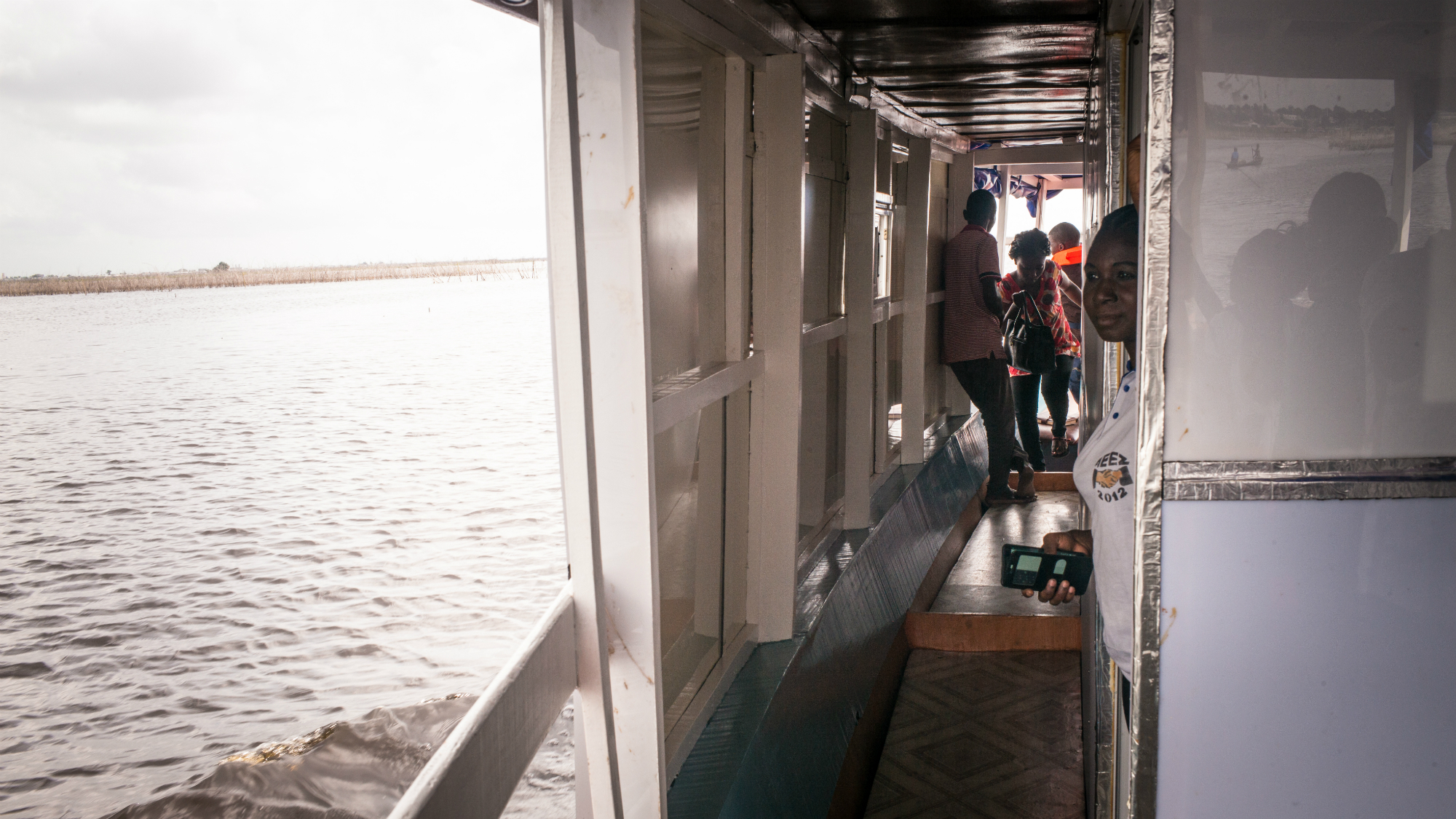
Consisting of two small nurses’ offices on board a wide flat-bottomed boat, the Barque Mobile is the first of its kind in West Africa – founded in January by local charity OSV Jordan and funded by the UNFPA, in a ground (*cough* water) breaking bid to provide free contraception to any woman who needs it. ‘The high rate of population growth is really concerning in Sô Ava,’ says former-nurse Josephat Avoce, who heads up OSV and first had the idea for the boat in 2015. ‘We needed to establish something that could discreetly help women to access family planning services where culture, illiteracy and tradition may have stopped them from asking for it in the past. It occurred to me that maybe a small boat, which was on their terms and on their waters, could do that.’
Its designs are simple. From dawn to dusk, Monday to Friday, the Barque Mobile sails slowly back and forth along the tributaries of the river Sô. Anyone is welcome on board at any time – for a chat, a check up or just a quick taxi service to the next village. But inside the clinic, only the gentle undulations of the floor on the water give its floating location away. A cushioned examination table lies behind a curtain. Drawers full of foil-wrapped condoms and IUDs nestle next to two types of pill, Depo-Provera injections and those implants-that-go-in-the-soft-underside-of-your-arm. Folders of patients’ details line up along a desk. Women are encouraged to drop by on their own or with their husbands – reassured that if they try one form of contraception and decide it’s not right for them, they can always stop and try something else. ‘We want to be part of the community,’ explains Laetitia. ‘There’s a lot of fear and confusion surrounding contraception, and one of our main priorities at the moment is overcoming that.’
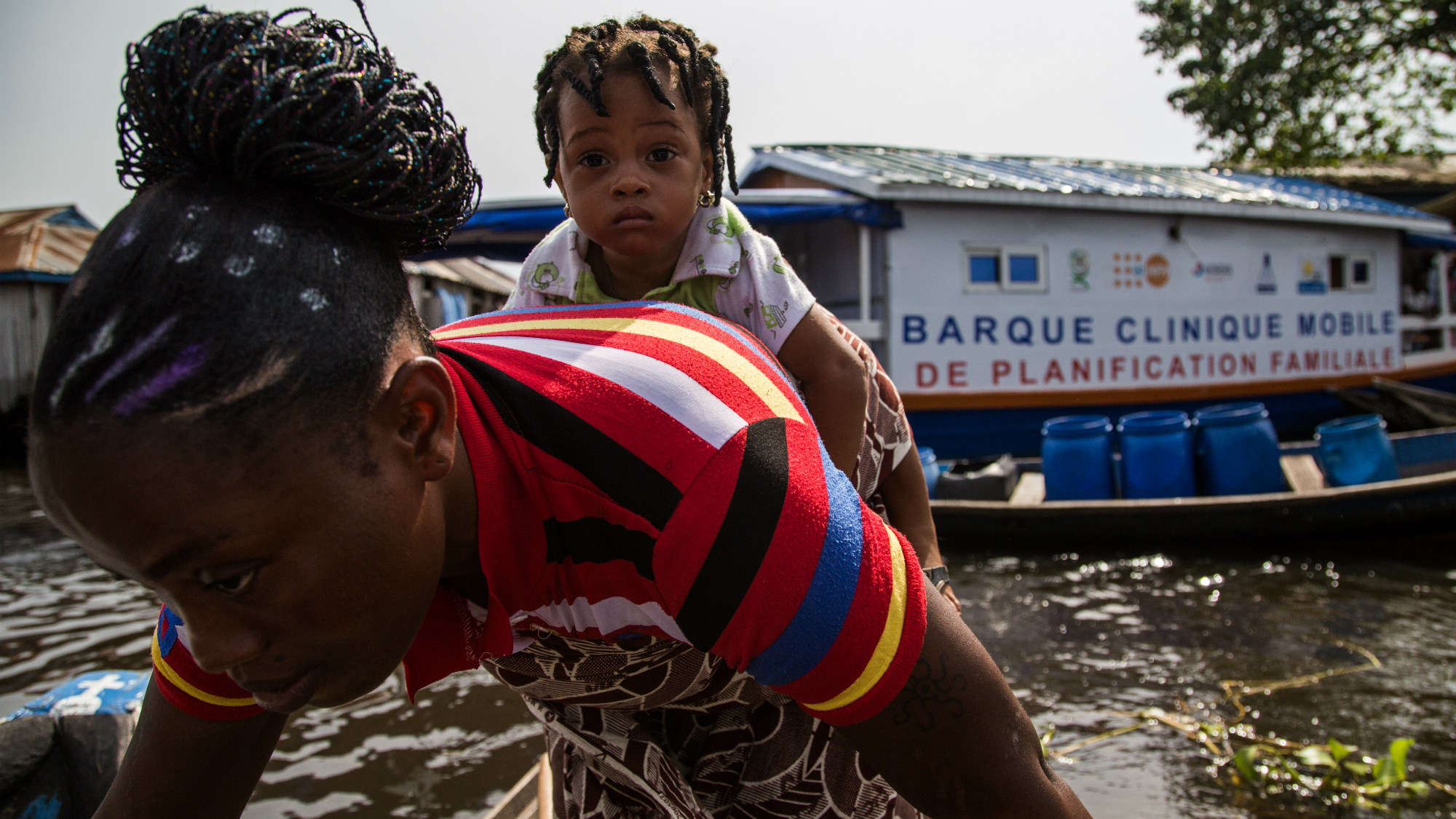
And it’s not just the men who need convincing. ‘In theory, the idea of planning when you get pregnant sounds amazing,’ says Flavienne San, a 20-year-old from Ganvié, who was hoping to become a doctor until she fell pregnant at 18 with her daughter, Hariette. ‘But some people say that if you take the pill for too long, then you’ll never be able to have children again, and I’ve also heard that you might get your periods two or three times a month – or you could go two or three months without having a period at all. I don’t like the sound of any of that.’
Even if a couple does clamber up the wooden steps and onto the Barque’s whitewashed deck together, the onus invariably falls upon the woman to choose from the reproductive pic’n’mix of contraception – and then swallow it down on a daily basis. Condoms are available on board the clinic, but Laetitia admits that few men come on board on their own to stock up. ‘We do encourage them to get checked for STDs and HIV, and to take condoms away with them,’ she explains. ‘But we don’t have any way of accurately knowing how many men are using condoms because of our clinic.’ Figures from the UNFPA suggest that it might not be many – one study reckons that less than two per cent of all men in Benin have used modern a method of contraception. When I ask Jacob if he would ever consider condoms, he looks confused, and replies that he doesn’t need to – Christine gets the injection, so what’s the need for him to get involved? ‘I trust this method,’ he adds.
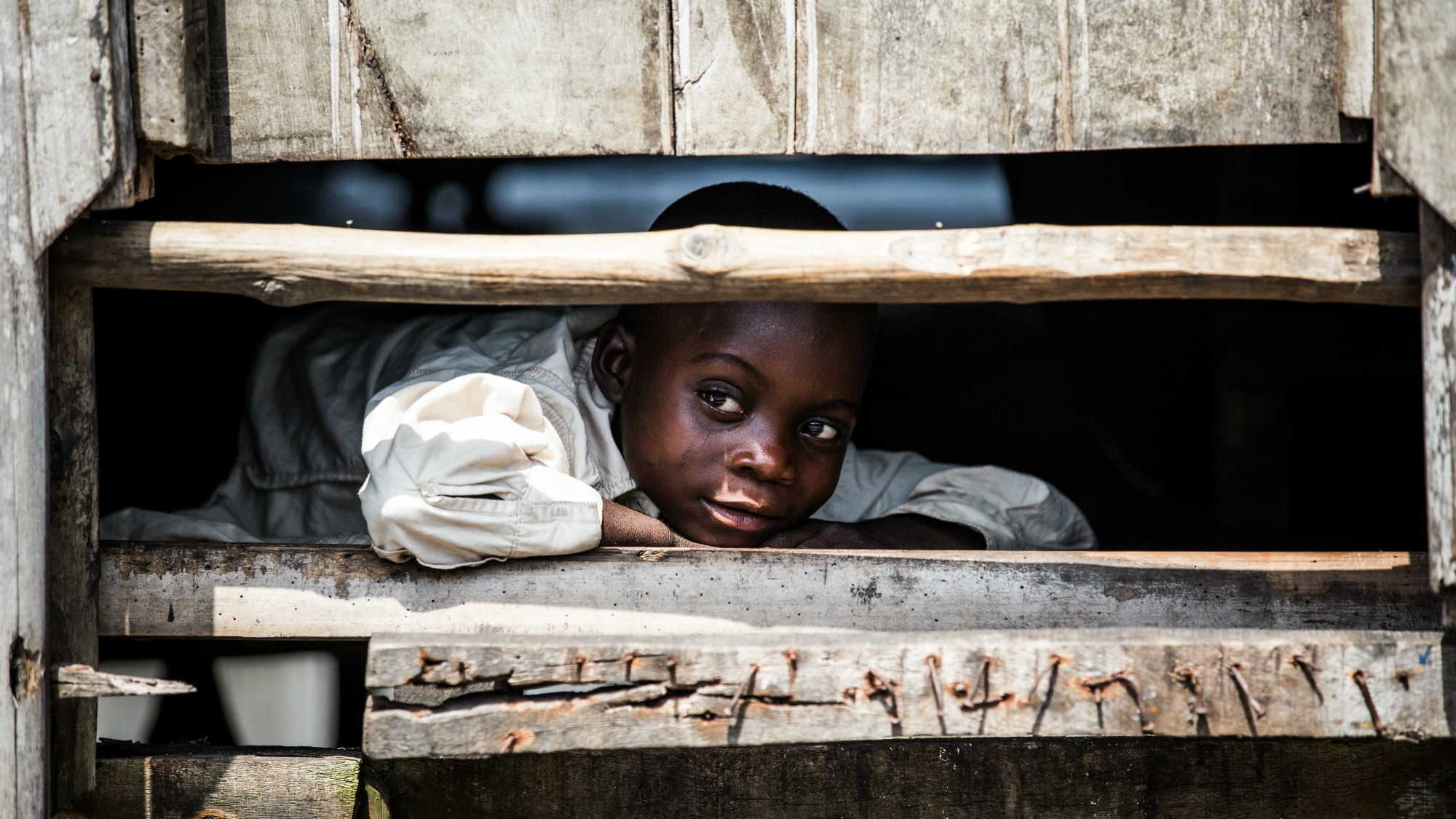
But while Flavienne is still unconvinced if she can trust any form of hormonal contraception at all, for Simplicia, the clinic’s apparent efficacy seems to have made news of her pregnancy even harder to hear. As she prepares to disembark, her voice – accented with frustration – can be heard murmuring to Bouraisma. ‘I told you we should have come sooner’, she says. Thinking that he’s away from the eyes of journalists and photographers, Bouraisma’s bravado fades. In fact, the 25-year-old almost looks chagrined.
THE RIPPLE EFFECT
Birthdays aren’t a big deal in Sô Ava. Age is hazy – a vague approximation or guess based on a child’s development and how many fingers they hold up on each hand when you ask them. So when Claudine tells me her daughter turned 17 this year, she admits she can’t be sure. She is, however, certain that her daughter has been married for at least four years, and that she has two children of her own. She hasn’t ever spoken to her son, or her daughter, or her daughter-in-law about family planning. ‘I wouldn’t be able to look at them in the eyes,’ she says.
Ultimately, this is what Josephat and Laeticia hope that the Barque Mobile can change. By establishing a visible presence on the region’s waters, they hope that they can eliminate the shame that shrouds sex and the rumours clouding contraception – and promote an open discussion about the repercussions on both men and women if they have too many children.
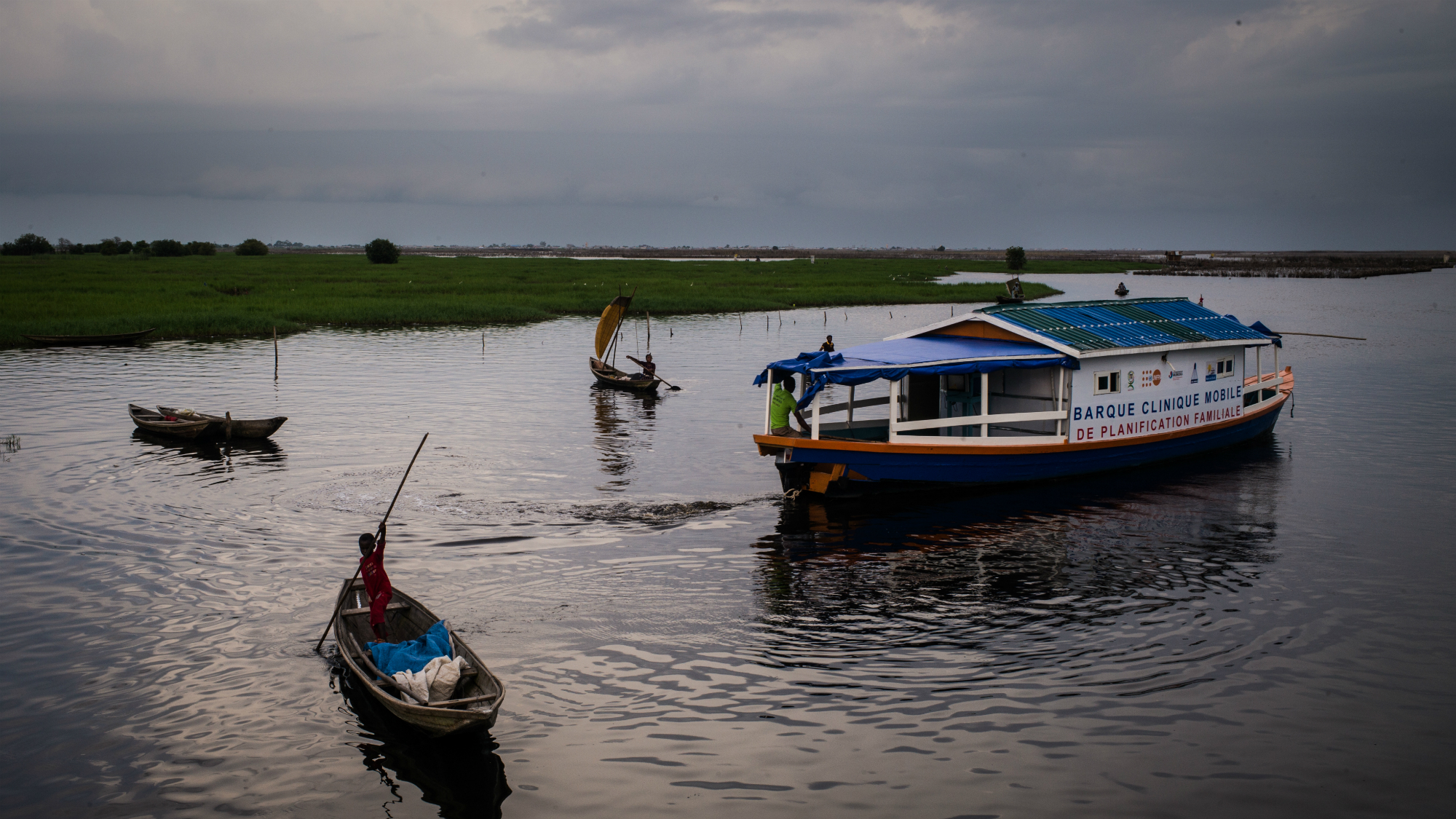
‘This boat is just the beginning,’ says Andre Todje, So Ava’s deputy mayor, who has been working alongside OSV Jordan to integrate the clinic into the community. ‘Changing the mentality of an entire region is not just a day’s work. But if we can get one family on board, then maybe they can help to get another family to follow.’ They’ve already finished building a second boat, he adds, and a third is in the works. ‘Some villages are 40 kilometres down the river – without more boats, we can’t reach them,’ he adds. ‘But we plan to exceed all expectations, and show the world what can be done if you adapt to your environment. If we tell families that they absolutely have to stop having children, then they won’t listen. But if we inform them that they can plan when to expand their families – how to time their births so that they can give their children as many opportunities as possible in the future, then the benefits become clear.’
Simplicia agrees. Her daughter, Tatiana, is eight years old – just four years younger than she was when she first became a mother. It’s been three days since I first met her on board the family planning clinic, and she’s invited me back to her house, five kilometres away. In a moment of apparently impromptu benevolence on Bouraisma’s part, we’re allowed retreat out of earshot to his storage cupboard. Cross-legged on the floor and backs pressed against piles of brightly patterned sheets of cotton and waxcloth, she finally speaks. ‘Women’s lives in Benin are hard,’ she says. ‘But our lives are improving because we can go to school – or at least, our daughters can go to school. Our daughters can speak up. Our daughters can have opinions.’ She laughs, and admits that she and her friends allow their husbands to believe they’re in charge – only to quietly do what they want when their backs are turned anyway. One of her friends has the contraceptive implant, for example, but her husband doesn’t have any idea.
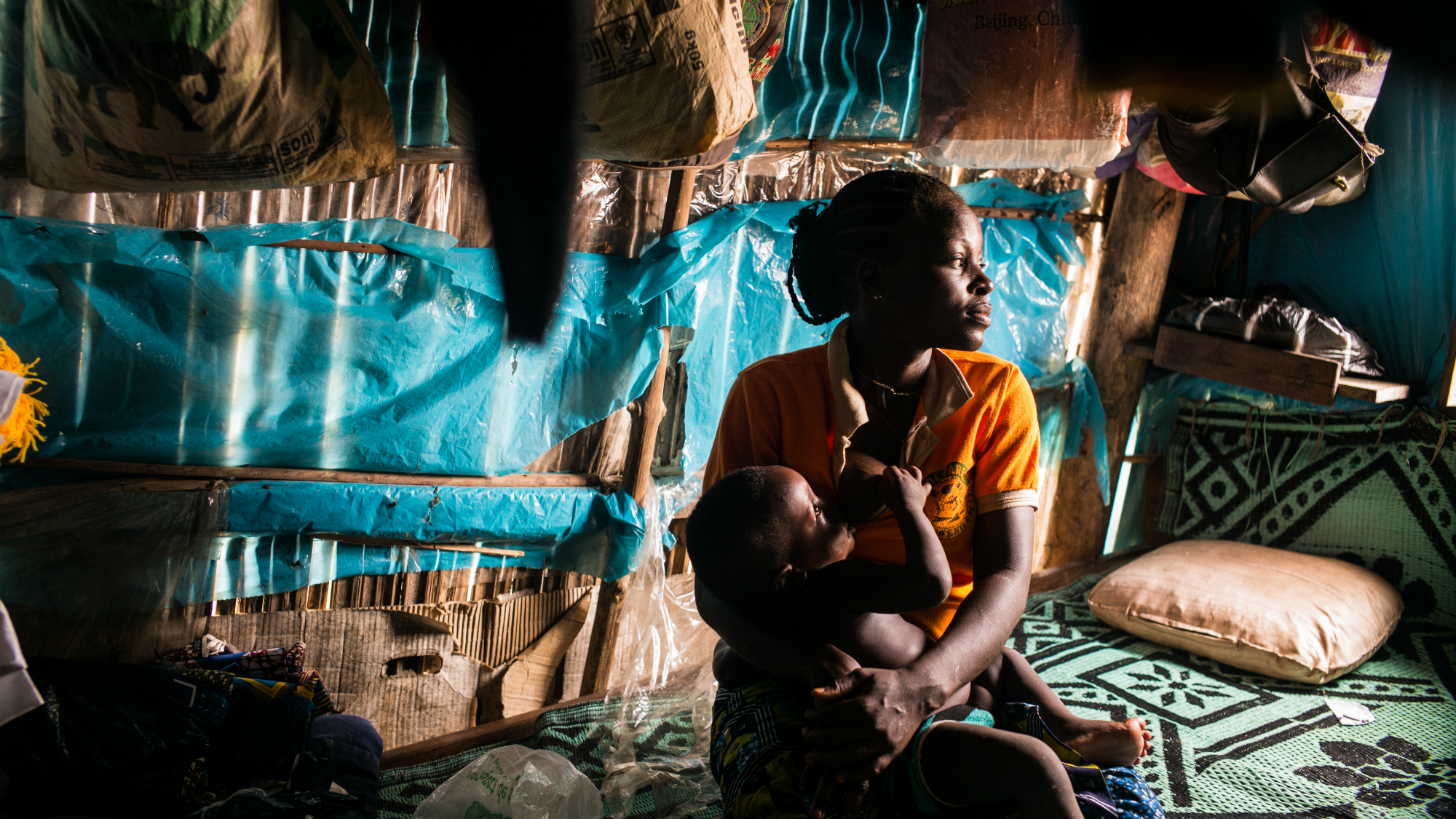
Her optimism is shared by the other mothers. It might be too late for them, says Albertine, but it’s not too late for them to tell their daughters. ‘I think it’s important to do what is right for your generation,’ says Albertine. ‘In today’s society, young people use contraception. We’ve lost the knowledge of our elders, but that doesn’t mean we can’t replace it with something new.’ For Christine, the pill is a blessing – but one that’s hard to swallow. ‘I’ve spent the last two decades of my life pregnant,’ she says. ‘I have suffered so much. I wish I had been told about it sooner.’
There is a common phrase among women in Benin, Simplicia adds, as I stand up to leave. ‘We say, “My daughter’s arms will reach higher than my arms. She will achieve even more than me”.’
I like it, I reply. It feels positive.
Simplicia nods. ‘When Tatiana is a teenager, I will tell her everything she needs to know about contraception, and I will force her to use it. Because if I want her arms to reach as high as possible, then I cannot let her get pregnant when she’s as young as me.’
Join the campaign to improve women's reproductive rights at www.unfpa.org
-
 How the slogan t-shirt became this season's must-have - and why it's more than just another trend
How the slogan t-shirt became this season's must-have - and why it's more than just another trendNot just another Nineties throwback
By Clementina Jackson
-
 How are Trump’s tariffs affecting the fashion industry?
How are Trump’s tariffs affecting the fashion industry?The fluctuating situation in the US is having very real consequences
By Rebecca Jane Hill
-
 Here's every character returning for You season 5 - and what it might mean for Joe Goldberg's ending
Here's every character returning for You season 5 - and what it might mean for Joe Goldberg's endingBy Iris Goldsztajn